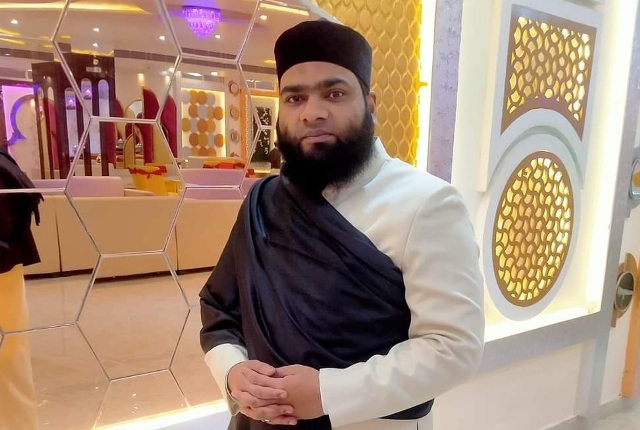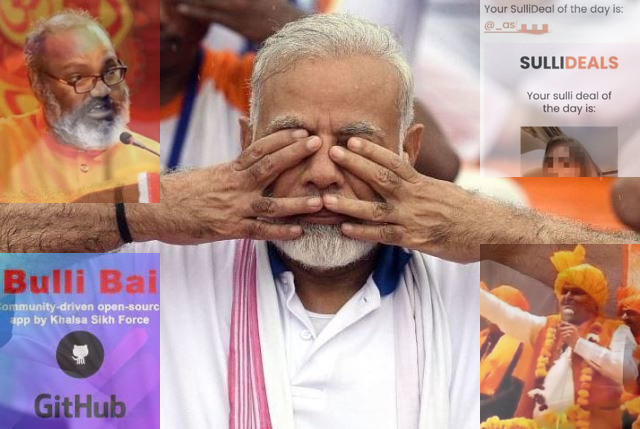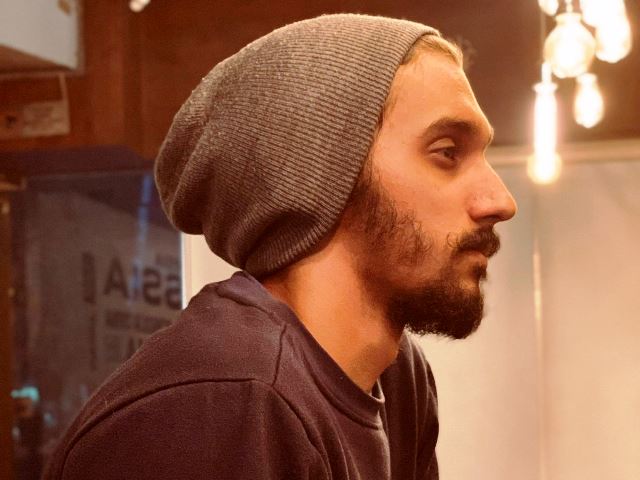Finally, everything comes back to hate and bigotry. Yogi Adityanath’s first declaration after the model code of conduct was imposed proves that – 80 per cent versus 20 percent. And the Election Commission and most opposition parties choose to remain silent.
Hate has become legit in contemporary India, as is the epidemic of mob lynchings across the tormented Hindi heartland. The bile of poison flows like a relentless dirty gutter in the dingy and cloistered inner lanes of the political subconscious of the ghettoized Neo-Nazi hate machine.
Xenophobia and the politics of hate have been overtly and tacitly legitimized by the dominant power narrative in India. No wonder even high-tech and educated youngsters have become ‘Trads’ – hate-mongering, online warriors who seem to be even Far Right of the Establishment Right Wing.
So much so, there is the danger that this viciously spreading apparatus would one day lose total control and eat up its own inheritors and mentors in the final countdown. Something the RSS and BJP, like the fascists in Germany, refuse to realise – that it is a mad monster they are riding which can one day ravage them also, and with them, the largest democracy in the world.
Eminent Social scientist Arjun Appadorai, who teaches in Berlin and Paris, wrote recently, and aptly so, “The silence of Narendra Modi and Amit Shah about these unprecedented calls for full-scale armed war against Muslims can be read in one of two ways: as signs of their sense of impunity and confidence, or as signs of their sense of precarity and insecurity. I make a case here for the latter argument… My argument is not the familiar instrumentalist argument about the Uttar Pradesh elections and the BJP’s concern about being humiliated in its sacred heartland. I believe we are witnessing what I call ‘Genocidalism’, which stems from a deeper logic which afflicts all ‘xenophobic nationalisms’. This logic is connected to ‘the relationship between nationalism and violence,’ and to what Marx and many Marxists identify as ‘the Treadmill Effect’.”
Taking the case of the youngsters caught in various small towns across India, auctioning Muslim journalists, professionals and educated women, mothers, daughters and sisters, ‘The Quint’ took the opinion of an expert who has done considerable research on this method in the madness. Indeed, this is not mindless, it follows a belief and value system, like that of the Ku Klux Klan, and it is relentless, often invisible and scattered, but based on the spontaneous mob lynching pattern and psychology, and gets support from the dominant narrative of hate prevalent in current times. Trads, or Traditionalists, are ardent followers of the extreme Right cultural and social ethos, deriving inspiration from the Neo-Nazis and similar movements and individuals. Perhaps they secretly hold the mad mass murderer in Norway, Anders Behring Breivik, as their role model.
Breivik killed 8 persons first by detonating a van bomb at Regeringskvartalet in Oslo, than murdered in cold blood 60 participants of a summer camp organized by the Workers’ Youth League, on July 22, 2011. In his Nazi-type manifesto, he wrote, among other fanatic ramblings, The (then) UPA government “relies on appeasing Muslims, and very sadly, proselytizing Christian missionaries who illegally convert low caste Hindus with lies and fear, along Communists who want total destruction of the Hindu faith”. Surely, most of the current Hindutva fanatics in India share Brievick’s worldview.
Surely, they are like a cult: sexist, racist, homophobic and xenophobic, verging on terrorism. They play with online genocidal ‘humour’, and one-dimensional hate unleashed against Muslims, Dalits, Sikhs, and other minorities. They believe in the ‘Manusmriti’, and that this retrograde anti-women, patriarchal, feudal, upper caste text, should replace the Constitution of India. They care two hoots for the values of the freedom movement or the sacrifices and martyrdoms of our freedom fighters and revolutionaries. According to the expert, they are so extreme sometimes that they even hate the BJP-RSS and its hydra-headed octopus like Sangh Parivar for soft-peddling on hyperbolic Hindutva. Apparently, as ‘The Quint’ reports, “they even dislike Modi and consider him to be unfit to be the PM. They mock his caste and his supposed inability to deal with the minorities with an iron hand…”
“The Trads only love those who can hate unapologetically. They even hate those BJP followers who take refuge in hateful dog whistles. Trads consider them to be hypocritical. Here, hate is ‘humour’ and it includes incitement to mass rapes and genocide. Those who don’t laugh have a problem according to the Indian chanosphere (alt-right universe)…”
Fortunately, the Trads and the mainstream-fringe groups still face large-scale and effective opposition on the ground from a huge majority of mainstream India, across religion and communities, from celebrities, students and intelligentsia, civil society, sportspersons and Olympians, to ordinary folks on the streets. Indeed, thankfully, the Supreme Court too has finally accepted to look into the matter on the call of genocide against the entire Muslim population in India by miscellaneous extremists masquerading as sadhus etc.
That Modi and his entire cabinet have chosen to remain mum, is predictable. Even the women in his cabinet seemed undisturbed by the perverse and degrading ‘multiple auctions’ of Indian women in the Bulli Bai and Sulli deals. The UP deputy chief minister became brazenly belligerent when a BBC journalist asked him politely about the call for genocide. Why this fear to condemn what is so blatantly wrong and unethical, and goes against all the principles of social conduct, if not a clear case of violation of the law of the land?
To cling on to this fanatic hate machine, and to play this polarizing card, seems to be the ‘final solution’ of this discredited regime, with failure written sharp and clear on its face, on all the human development index, its economy and foreign policy in an abyss, and all its promises of ‘acche din’ having disappeared without a trace.
The petitioners said that they were constrained to approach the top court seeking its urgent intervention regarding the hate speeches between December 17 and 19, 2021 in the two events organized in Haridwar (by Yati Narsinghanand), and in Delhi (by the ‘Hindu Yuva Vahini’). It said, “the aforementioned hate speeches consisted of open calls for genocide of Muslims in order to achieve ethnic cleansing. It is pertinent to note that the said speeches are not mere hate speeches but amount to an open call for murder of an entire community. The said speeches, thus, pose a grave threat not just to the unity and integrity of our country, but also endanger the lives of millions of Muslim citizens.”
The petition said, “…it is also relevant to note that no action whatsoever has been taken by the Delhi Police in relation with the event held in Delhi despite the fact that open calls for genocide, that are available on the internet, were made therein.” It also said that that the “recent speeches are a part of a series of similar speeches that we have come across in the past…”
Indeed, despite the bile and the poison, hope floats. Not only the secular society, but a large number of educated people have protested. Faculty members and students from the Indian Institutes of Management (IIM) in Ahmedabad and Bengaluru have written a letter to Modi asserting that his silence “emboldens” voices of hate. The letter has 183 signatories – including 13 faculty members of IIM Bangalore and three of IIM Ahmedabad.
“Your silence on the rising intolerance in our country, Honourable Prime Minister, is disheartening to all of us who value the multicultural fabric of our country. Your silence, Honourable Prime Minister, emboldens the hate-filled voices and threatens the unity and integrity of our country,” says the letter.
“For far too long, the mainstream discourse has dismissed the voices of hate as the fringe. That’s how we are here,” a faculty member at IIM Ahmedbad told the ‘Indian Express’.
However, the point is, is the Honourable Prime Minister listening at all? By all indications, he is not. He never did.




